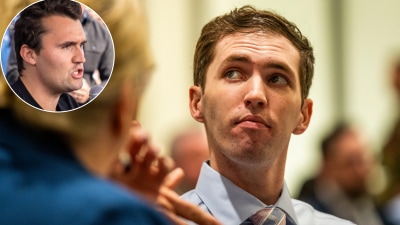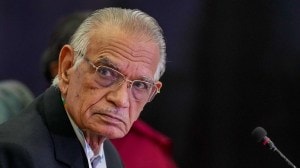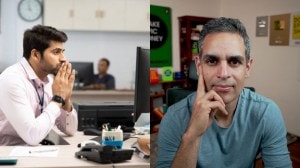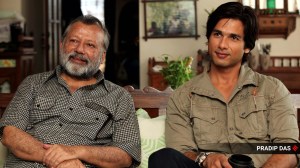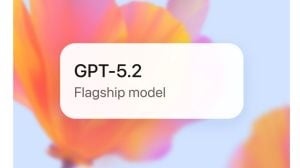How an event like SALA, where the arts are celebrated, sowed the seeds of change
We celebrated India and its rich culinary heritage and highlighted the need to have more hyper-focused and regionalised offerings
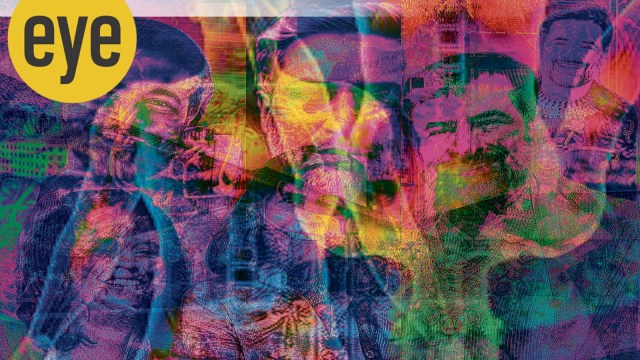 I have access and agency, options and choices, and, most of all, I have an abundance of love. (Credit: Suvir Saran)
I have access and agency, options and choices, and, most of all, I have an abundance of love. (Credit: Suvir Saran)Rana Visharo Pyaala Bheja, Piya Magan Hua, Meera Ree Lagan Lagya, Hon Ho Jo Hoya
Sent a cup of poison by her husband who discovered her love for Krishna, Meera drinks it and is even more consumed by the connectedness that comes with true devotional love, and each sip of poison furthers her belief that in the end what happens is what needs to happen.
From my Air India seat on a direct flight from San Francisco to Mumbai, I reflect on these words as I experience staggering physical pain doing its best to break me apart. These last lines of Mhara Re Girdhar Gopal, a much-loved bhajan, are a deeply-rooted mantra that is the encomium to true love and devotion, to life and living. I understand through the words of the popular bhajans of Meera and Kabir that to find love we need to make peace with some heartburn, and that to gain, we must learn to lose.
Mile high in the sky, looking down at the earth, I realise how minuscule the world is, and how irrelevant individuals are. I am reminded how small I am and even smaller the suffering I must endure to reach true connectedness and the necessary end. I am also reminded that counting our blessings can give us a momentary salve that brings hope and comfort, the most essential balm of all. And so I fight through the pain to recall the events of the last four days, of the warmth and reception afforded me as a presenter at the South Asian Literature and Art festival (SALA), where other South Asian luminaries and icons also shared their stories.
Ferose VR – a celebrated global industry leader and The New Indian Express columnist – was chosen by SALA’s Ambika Sahay, Mayuranki Almaula Sangeeta Mehra and Kiran Malhotra, to unlock the man behind Slice of Life, my column (in The Indian Express), that they had grown to embrace. Ferose offered to provide me with his questions beforehand, but I suggested we give the attendees the gift of a genuine, unscripted meeting between two humans where a hesitation, a rolling of eyes, an expression of an emotion that says a million words in their sum and total, would be the heart and soul of our conversation. I became as vulnerable and raw as I could ever be, in the hope that I could touch a few lives to see the world for what it really is and to rise to become better versions of self and make our societies more empathetic for those differently abled. Our session was received well, and Ferose approved.
During another presentation, I was on a panel with three remarkable humans Heena Patel, Keith Sarasin and Srijith Gopinath, culinarians who shared little vignettes into their lives, their inspirations, their passion and their struggles. While on stage, I remember thinking that nothing much could happen in those very short 45 minutes that would spark a movement for bettering the lives of chefs, the foods being celebrated together, and the lives of hospitality staff. Of course, we all celebrated India and its rich culinary heritage, we asked each other questions, and we highlighted the need to have more hyper-focused and regionalized offerings. All noteworthy activities, but nothing that would change the face of Indian cuisine anywhere. Our panel was a nice glimpse into the lives of us four chefs but it celebrated the status quo that I believe is keeping Indian food behind in the annals of culinary history. Our discussions, celebrating and promoting our journeys, offered nothing that would change the food offerings, business ethics, and employee experience in the restaurants of tomorrow. I am usually happy to play Pollyanna, as I truly believe that in the end good prevails, but tomorrow’s chefs and culinary operators ought to gain a deeper critique of our times and businesses from us so they can be the change we need for Indian food to progress into its richer and more authentic versions. By being the cantankerous old man of the panel, I was able to give my honest assessment of what Indian cuisine is today.
Then there was that amazing lunch at Shobha Tharoor’s home in Campbell, where I got to see her husband Raj Srinivasan and hear her life’s story and where I was given further glimpses into their personal and shared journeys. Their hospitality and generosity gave me the best gift any friend can want: time. Rich moments that gave Shashi Tharoor, my aunt Aruna and me, as well as Ananth and Sharanya, son and daughter-in-law of our hosts, the ability to connect and further our bonds of friendship. The love, care and protection that Shashi’s sisters have for their celebrity brother always gives me a connection to my sister Seema, reminding me of the many blessings she has bestowed upon me.
Shashi Tharoor, a true wizard with words, was the star of that luncheon. His kindly, genteel manner, his firm yet gentle musings on the reality of life, his unwavering belief in humanity – these come alive in the ease and candour with which he shares and heals. Of course, yummy pizza made by Ananth in Shobha’s “all-American kitchen” with beautiful looks, but no thought given to practicality, was affirmation that even in a desert an oasis can be found, when there’s a foundation and possibilities of dreams. Shobha, like countless other immigrants, creates deliciousness despite the odds presented to her by a nation disconnected to food and cooking, life and circumstance.
Salima Hashmi was at SALA, and I couldn’t get enough of her, an incredibly gifted and talented artist, generous in sharing her story to inspire others. She is a living and in-flesh connection for me to Faiz Ahmad Faiz, the revolutionary Pakistani poet who started giving me words and hope at age nine, helping me see a world that might be better than what I saw in my caged brain.
Chronic pain, where the physicians have only palliative care as their offering, is a way of life. It is a constant downer and a drain to both EQ and IQ. Barbiturates numb the pain but would make me a happily numb vegetable. I am fortunate that the passions I have, when I indulge in them with full gusto, take me to those euphoric heights where creativity takes over and pain is relegated to a child seat at the very back of the car that is on a joyous ride.
My nights in Palo Alto were the most painful nights of my life yet, but this counting of my blessings blessed me with eight hours of deep sleep on my journey. How lucky I am to have family and friends who heal me by showing me the face of deeply human humans who bring our collective together.
I thank my stars for the opportunity to be at events like SALA where the arts are celebrated to serve the purpose of fuelling passionate creativity by humanity to show hope and bright futures as we sow the seeds of possibilities and change. I have access and agency, I have options and choices, and, most of all, I have an abundance of love from family and friends. These blessings are my barbiturate, and when I reflect on them, I see, or at least I am distracted from, the pain and feel that life is beautiful.
- 01
- 02
- 03
- 04
- 05


